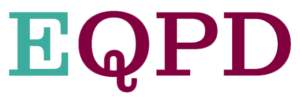How EQPD's K-12 Connect
Trained Hundreds of High-Impact Tutors


K-12 Connect & Saga Education
Grand Valley State University
2021-Present
Key Takeaways
- For three years, K-12 Connect has leveraged the power of Saga Coach, a self-guided training program, to equip tutors with tutoring best practices.
- K-12 Connect incorporates Saga Coach into year-round training and serves as a refresher for more experienced tutors.
- Tutors can be introduced to various elements of tutoring in Saga Coach over time and integrated with reflection sessions as part of ongoing training.
- Influenced by their positive tutoring experience, some Grand Valley State University students have switched majors to education.
- High-impact tutoring supported by the university has helped facilitate a tutor-to-teacher pipeline, resulting in direct hires by partner schools.
High-Quality Training for High-Impact Tutoring
Responding to the impacts of the COVID-19 pandemic on Michigan school children, the president’s office at Grand Valley State University launched a free homework-help program to provide K–12 students with academic support. The program, called K–12 Connect, was formed in 2020 and was initially staffed with students, faculty, and staff volunteers to address pandemic learning loss.
 The program rapidly evolved into a live-online, high-impact tutoring program that paid college students–leveraging community service work-study–to work as tutors in reading, math, and high school academic mentoring. Today, the organization has spun off from the university’s GV NextEd Co-Lab incubator as EQPD Learning, a nonprofit high-impact tutoring organization.
The program rapidly evolved into a live-online, high-impact tutoring program that paid college students–leveraging community service work-study–to work as tutors in reading, math, and high school academic mentoring. Today, the organization has spun off from the university’s GV NextEd Co-Lab incubator as EQPD Learning, a nonprofit high-impact tutoring organization.
As the K–12 Connect program grew and began working with hundreds of tutors, the organization recognized a need for a training platform to help prepare tutors with limited experience teaching or tutoring with best practices for working with K–12 students. Alissa Thelen, Director of Learning and Development, and Amirah Vosburgh, CEO of EQPD, identified Saga Education’s Saga Coach as a resource to provide tutors with the training they needed. “I went through all the modules myself,” Thelen said. “And I was super impressed and shocked that it was free.”
Saga’s CEO, Alan Safran, asked the nonprofit’s technology team to stand up the training platform for the nation, and 90 days after making this decision, the Saga Coach portal was released.
 Thelen said that Saga Coach’s tutoring framework (relationships, ratio, and rigor), the interactivity of the modules, and structure of individual lessons met K–12 Connect’s requirements for ongoing training of tutors. Saga Coach is the foundational pre-service training that tutors receive, and tutors meet weekly with coaches for ongoing training throughout their service.
Thelen said that Saga Coach’s tutoring framework (relationships, ratio, and rigor), the interactivity of the modules, and structure of individual lessons met K–12 Connect’s requirements for ongoing training of tutors. Saga Coach is the foundational pre-service training that tutors receive, and tutors meet weekly with coaches for ongoing training throughout their service.
K–12 Connect gradually implemented Saga Coach modules with tutors. New tutors start with the first modules on “relationships” before they begin tutoring. Over the course of their first year, tutors needed to progress through the rest of the modules. Tutors’ instructional coaches track their progress. For follow-up, Thelen developed reflection sessions to accompany Saga Coach. K–12 Connect instructional coaches work with tutors weekly. Tutors who return to the program after their first year are expected to review the core elements of Saga Coach to maintain currency with training. K–12 Connect is exploring building and expanding content with Saga Education for more advanced tutors.
Rationale
Tutors who join K–12 Connect may lack specific training or experience with education. A training platform such as Saga Coach provides foundational knowledge by breaking down elements of tutoring knowledge into digestible chunks and establishing criteria for successful tutoring sessions.
By the Numbers
- 75,000+ high-impact tutoring sessions have been delivered to students since 2021, showcasing the effectiveness of K–12 Connect’s approach to flexible, live-online high-impact tutoring.
- 1,000+ trained tutors have worked with K–12 students and have gained valuable experience that can lead to careers in education.
- 5,500+ students benefited from well-trained tutors who delivered personalized tutoring to attain proficiency in math, reading, and college preparation.
User Perspectives
Conclusions
- Saga Coach provides K–12 Connect tutors with consistent, high-quality training for new and experienced tutors.
- Elements of the Saga Coach tutoring framework—relationships, ratio, and rigor—play a role in the evaluation of tutors’ effectiveness.
- In addition to Saga Coach, students attending Grand Valley State University can also enroll in a one-credit course to become tutors with K–12 Connect.
- To encourage tutors to grow in their roles, K–12 Connect offers tiered pay steps to reward tutors who demonstrate reliability, complete professional learning tasks, and take on leadership roles.
Pro Tips
- Develop different training levels for tutors to address varying needs and experiences.
- Conduct regular evaluations and observations of tutors to ensure the program maintains quality standards.
- Use a structured training platform to ensure consistent foundational knowledge of all tutors in the program.
- Prevent tutors from being overwhelmed by gradually introducing them to content in the Saga Coach platform.
- Incorporate critical components of the Saga Coach approach into reflection sessions and ongoing coaching.
- Hire and contract with experienced coaches to provide ongoing professional development of tutors.
About EQPD
EQPD (pronounced “equipped”) is a nonprofit organization founded to provide every child — and every school — with the tools and resources they need to achieve. EQPD aims to revitalize education by providing high-impact tutoring, tailored professional development, and efficient program management so that:
- Students thrive academically and in life beyond K–12
- Families feel included in their child(ren)’s success
- Tutors get training and compensation that supports their professional aspirations
- Districts can upskill their paraprofessionals and other staff
- Universities can offer more and better community service work-study for their students with less management overhead.
All Images Courtesy of Grand Valley State University
